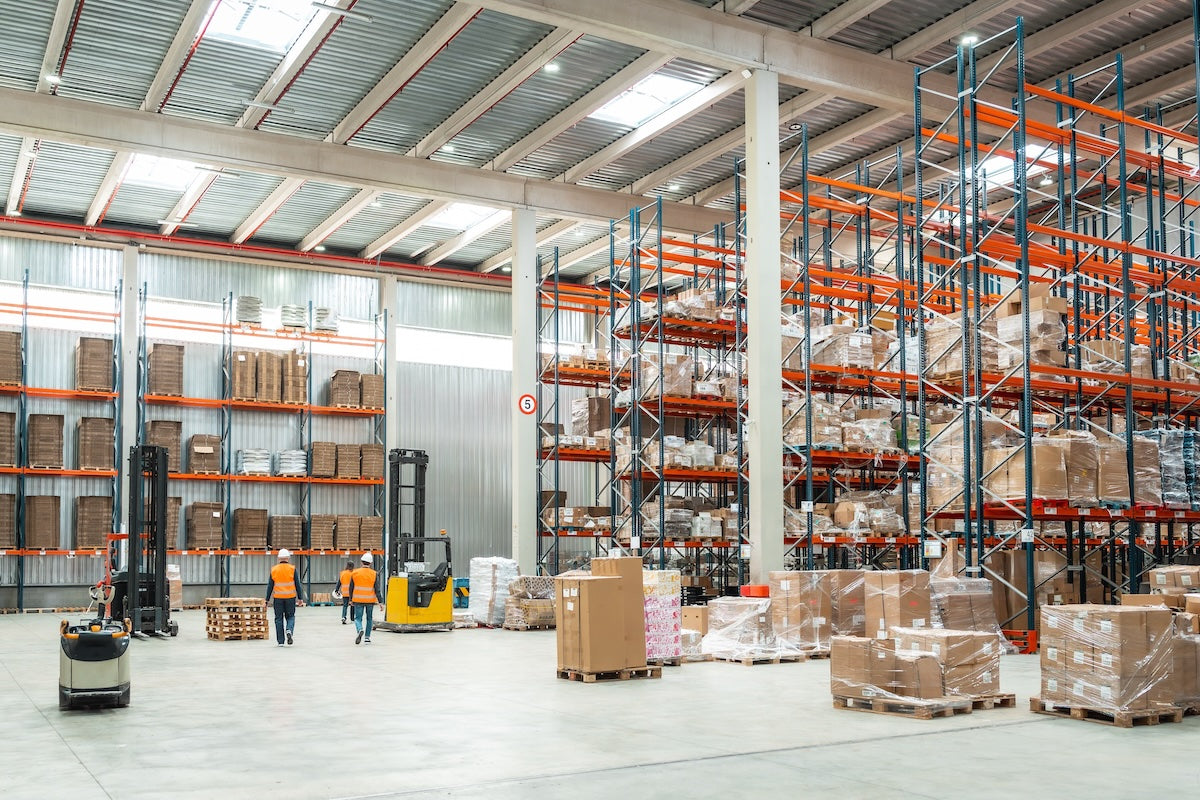
The Hidden Costs of Warehouse Management Challenges
Running a warehouse is a high-stakes operation. Whether you’re storing perishable goods, pharmaceuticals, or electronics, even small oversights can lead to significant financial losses. Here are some of the key challenges warehouse managers face:- Environmental Control Failures: Sensitive products require precise temperature and humidity levels. A single cooling unit malfunction can spoil an entire shipment, costing thousands. For example, up to 35% of vaccine wastage globally is attributed to improper storage conditions.
- Asset Tracking Inefficiencies: Misplaced forklifts, pallets, or inventory items cause delays, frustrate workers, and disrupt delivery schedules. Poor tracking systems can lead to up to 20% inventory loss annually.
- Energy Waste: Large warehouses often run lighting and climate systems unnecessarily, inflating energy bills by as much as 20%.
- Security and Safety Risks: Without proper monitoring, unauthorized access to restricted areas or unsafe conditions for workers can go unnoticed, leading to compliance issues or accidents.
A Real-World Example: Solving Warehouse Pain Points
Consider Sarah, a warehouse manager at a mid-sized food distribution company. Her team relied on manual temperature checks to ensure dairy products were stored correctly. One night, a cooling unit failed, and by the time it was noticed the next morning, an entire shipment of cheese was ruined, costing the company $12,000. Additionally, her team frequently lost track of forklifts during peak hours, leading to delays and frustrated customers.After implementing Bluemaestro’s BLE sensors, Sarah’s warehouse transformed. Sensors now monitor temperature and humidity in real-time, sending instant alerts to her phone if conditions deviate. BLE beacons attached to forklifts allow her to track their locations instantly via a mobile app, cutting search times in half. These changes not only saved her company from further losses but also improved efficiency and reduced stress for her team.
Another example is a pharmaceutical warehouse that struggled with compliance due to inconsistent humidity levels. By deploying BLE sensors, the manager received real-time data to maintain optimal conditions, ensuring regulatory compliance and avoiding costly fines. These stories highlight how BLE sensors can address real-world challenges, making them a must-have for modern warehouses.
How BLE Sensors Work
Bluetooth Low Energy (BLE) is a wireless technology designed for low-power, short-range applications, making it ideal for Internet of Things (IoT) solutions in warehouses. Unlike classic Bluetooth, BLE is optimized for devices that transmit small amounts of data, such as temperature, humidity, or location information. BLE sensors are compact, easy to install, and can operate for years on a single battery, with some models lasting up to 10 years.These sensors communicate with gateways or mobile devices, sending data to a central system for real-time analysis. This allows warehouse managers to monitor conditions, track assets, and receive alerts instantly, all without complex wiring or frequent maintenance.
Key Applications of BLE Sensors in Warehouses
BLE sensors offer versatile applications to address warehouse challenges:- Environmental Monitoring: Ensures sensitive goods like food or pharmaceuticals are stored correctly, preventing spoilage or damage.
- Asset Tracking: Streamlines operations by providing real-time location data for equipment and inventory, reducing search times and errors.
- Security and Safety: Enhances security by monitoring access and ensures worker safety by tracking movements in hazardous areas.
- Energy Management: Optimizes lighting and climate control, reducing energy consumption and costs.
Benefits of BLE Sensors
BLE sensors provide significant advantages for warehouse management:
- Real-Time Monitoring: Immediate notifications allow quick action to prevent losses.
- Cost-Effectiveness: Long battery life and low maintenance make BLE sensors a budget-friendly choice.
- Easy Deployment: No need for extensive infrastructure changes, saving time and resources.
- Scalability: Add more sensors as your operations expand, ensuring long-term value.
- Data Accuracy: Reliable data helps maintain quality and meet regulatory requirements.
Overcoming Potential Challenges
While BLE sensors are highly effective, they have some limitations, which can be addressed:- Limited Range: BLE’s range of 30–100 meters can be extended using mesh networks, where sensors relay data to cover larger areas.
- Interference: Operating on the 2.4 GHz band, BLE uses frequency hopping to avoid conflicts with Wi-Fi or other devices.
- Security Concerns: Advanced encryption and authentication protocols ensure data security.
- Compatibility: BLE sensors integrate easily with modern warehouse management systems via standard interfaces.
The Growing Demand for IoT in Warehouses
The adoption of IoT solutions, including BLE sensors, is rapidly increasing in the warehouse industry. The global IoT in warehouse management market is projected to reach USD 57.2 billion by 2033, growing at a compound annual growth rate (CAGR) of 14.5% from 2024. This growth reflects the need for automation, real-time data, and cost savings in logistics. By adopting BLE sensors, warehouses can reduce losses, improve efficiency, and stay competitive in a fast-evolving industry.Why Choose Blue Maestro?
At Blue Maestro, we understand the challenges of warehouse management and offer tailored BLE sensor solutions to address them. Our products include:- Customizable Sensors: Monitor temperature, humidity, light, motion, and more, designed for your specific needs.
- Seamless Gateways: Connect sensors to your existing systems for real-time data access and analysis.
- Long Battery Life: Our sensors are built for durability, minimizing maintenance and downtime.
- Expert Support: Our team provides 24/7 assistance to ensure a smooth implementation and ongoing success.